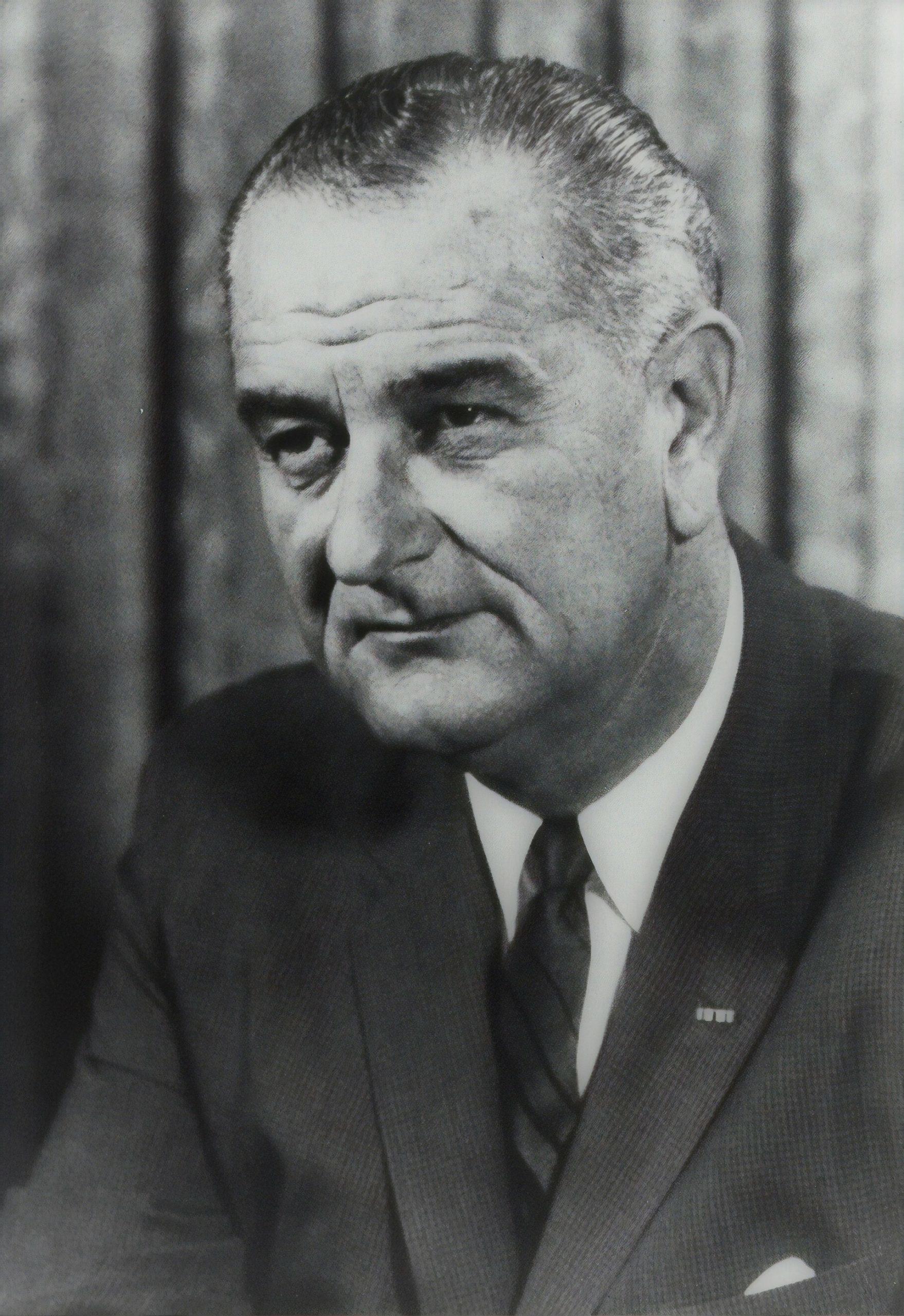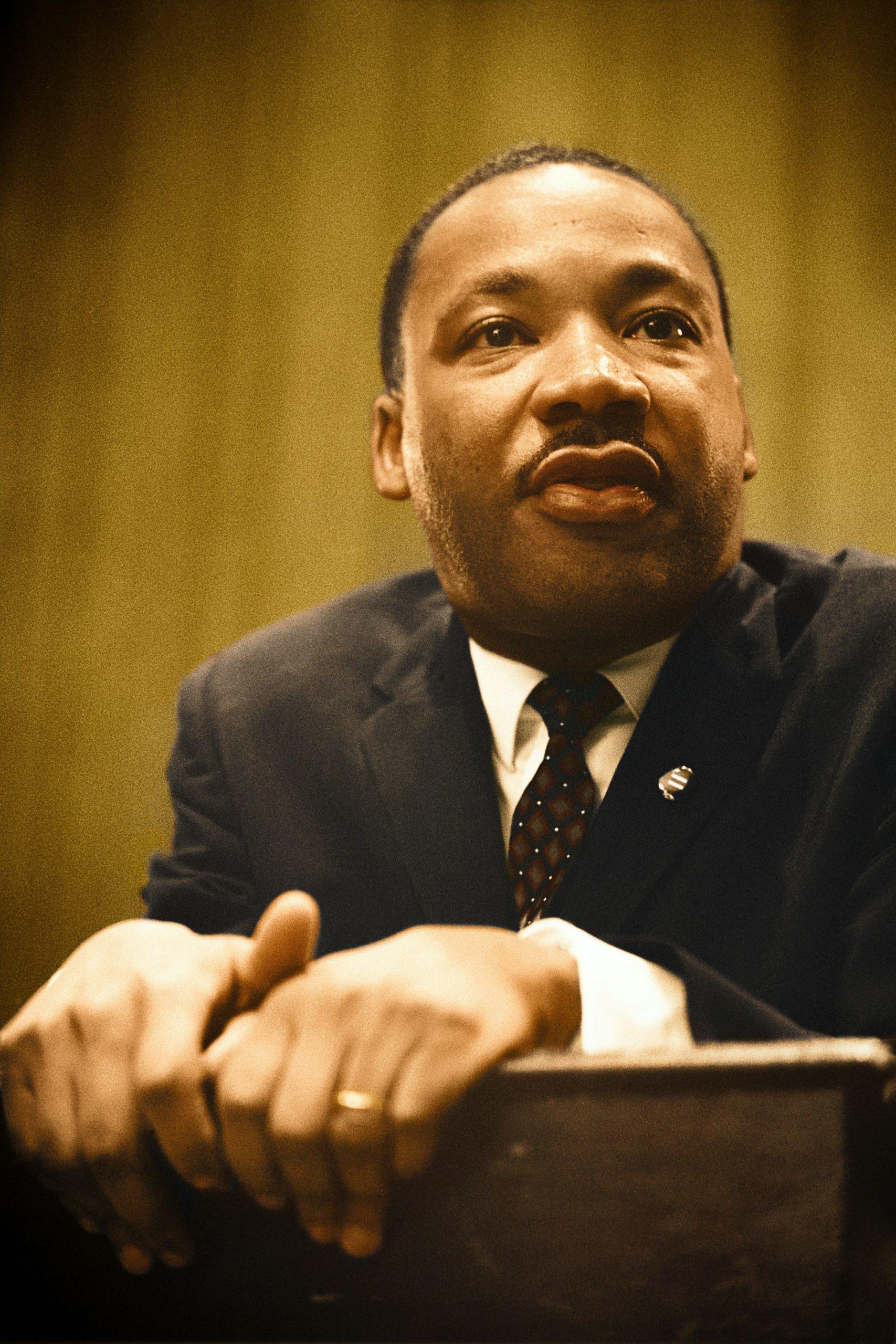Chapters
- An Overview of Johnson's Personality And Policies
- The Significance of The Great Society and Continuing The Kennedy Legacy
- Did Johnson Succesfully Maintain American World Power?
- What Are The Civil Rights Developments Under Johnson's Presidency?
- Emergence of Social Divisions & Protest Movements
- Conclusion
As the 36th President of the United States, Lyndon Baines Johnson (LBJ) had big shoes to fill.
When his famous and charismatic predecessor, John F. Kennedy was assassinated, he became the president initially through immediate succession where he was serving the Vice President.
He later won the 1964 presidential election through a large majority, 61% of the popular vote.
A seasoned politician who entered politics at 22, Johnson was known for his formidable physical presence (his height was 192cm) and great oratory skills.


An Overview of Johnson's Personality And Policies
Ambitious and extremely driven at work, Johnson excelled at intimidating his friends and political opponents to achieve his goals — applying "the Johnson treatment."
Johnson is famously known for using a wide range of threatening and persuasive techniques to push people to a corner, with no care of personal space and consideration about their views except his own.
Essentially, Johnson's understanding of power also helped him to effectively identify the pressing concerns in Congress, leading to a high success rate of passing various legislation laws during his administration.
The focal point of Johnson's policies was mostly domestic and centred around the problems of poverty in America, leading him to introduce a programme of legislation — The Great Society in 1964.
The Significance of The Great Society and Continuing The Kennedy Legacy
A continuation of his predecessor's policies such as Roosevelt's "New Deal" and Kennedy's "New Frontier, the Great Society introduced many acts involving several spheres including healthcare reform, education reform, urban renewal and the environment.
Some notable examples include:
- Economic Opportunity Act: The launch of Office Economic Opportunity (OEO) to administer "The War on Poverty"
- Medical Care Act: The introduction of Medicaid and Medicare programmes to assist the poor and elderly with the cost of medical treatment.
- Redevelopment Act: Create a concrete action plan of 150 "model cities" including social care, training, and housing programmes.
Johnson was adamant about passing the Civil Rights Act to honour Kennedy's legacy, which the former advocated for the first time in 1963.
Additionally, he retained a large group of Kennedy's governing team and established a presidential commission to investigate the tragic assassination of Kennedy.
Regarding economic development, Johnson followed Kennedy's proposed tax cut to stimulate the economy. As a result, the Gross National Product (GNP) increased by $9 billion, temporarily masking the issue of inflation and unemployment.
Did Johnson Succesfully Maintain American World Power?
At the beginning of Johnson's administration, there were initially no US troops fighting in Vietnam. He initially was campaigning on a peace platform but escalation of the war was seen as a more politically advantageous move back then, especially in terms of positioning the US to stand against communist threats.
Johnson later used the Tonkin Incident involving the attack of two US ships, the Turner Joy and the Maddox as a justification to escalate the Vietnam War in 1964.
Without knowing the true nature of the war, he greatly increased the number of air strike attacks in North Vietnam and the number of troops sent for war but these measures proved costly (economically and socially) in the long run.
The prolonged war also caused a sense of tension between the US and its Western allies including the UK and France. Johnson soon found himself dipping in terms of popularity by the end of his presidency in 1968.
What Are The Civil Rights Developments Under Johnson's Presidency?
There are two most prominent pieces of legislation for civil rights that Johnson successfully pushed Congress to pass during his administration
- Civil Rights Act of 1964: Prohibition of any form of discrimination (sex, colour, race, religion and country of origin) in public places, making employment discrimination illegal and integration of public schools.
- Voting Rights Act of 1965: A continuation of the Civil Rights Act after the Bloody Sunday incident, it prohibits racial discrimination during the voting process.
The effects of these two legislations were immediate and effective, leading to an increase in voting registration and elected officials among the African-American population as time progressed.
American minister and activist, Martin Luther King led a march from Selma to Montogomery to address equal voting rights but was attacked by state troopers using tear gas and clubs.
Beyond legislation for equal rights, other matters began to surface among the African American community such as the fight for economic equality and riots.
From 1965 to 1968, the African-American community found themselves in a series of economic, political and racial tension. For instance, the Africans in Chicago were constantly exposed to poor ghetto conditions, police brutality and suffered from a lack of skilled jobs.

After Martin Luther King's death, these frustrations took a worse turn through a series of riots and violence over 200 cities, resulting in many deaths, serious injuries and arrests.
The highlights of these civil rights developments and incidents through media coverage further raised questions on two matters. Firstly, the true essence of the American Dream. Secondly, the acknowledgement of Johnson's leadership despite his great efforts to support the Civil Rights movement.
Emergence of Social Divisions & Protest Movements
Amidst the dissent towards the Vietnam War and different views on the American Dream during Johnson's presidency, the 60s also saw a new social happening in the US known as the counterculture.
There were changes in the education and youth movements, with more young people studying in universities and colleges, and involving more in political engagements.
Feminism was also on the rise, advocating for equality at work and a stop to the objectification of women.
The civil rights movement took a different turn with the radicalisation of African Americans, leading to the rise of the Black Panthers, an organisation founded by Huey Newton and Bobby Seale.
Anti-war movements were also soaring when both the white and black civil rights workers actively made their cause and presence known. Famous boxer, Muhammad Ali even publicly refused the draft for the Vietnam War.
Alongside the increasingly dominant role of the media, every happening and event was captured and shown over colour TVs across households, giving Americans a clearer picture of what is happening in the country.
Conclusion
Johnson's presidency showed promising signs in the beginning, with a great ambition to achieve The American Dream through The Great Society.
Though he made the mistake of escalating the Vietnam War without a clear plan, he will be remembered for his relentless pursuit of civil rights and domestic social reforms.
Summarise with AI:








